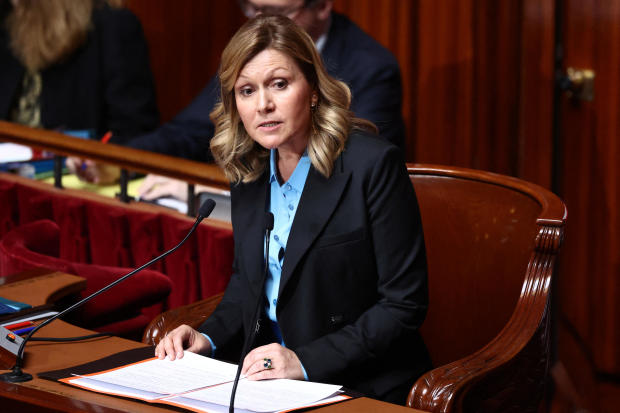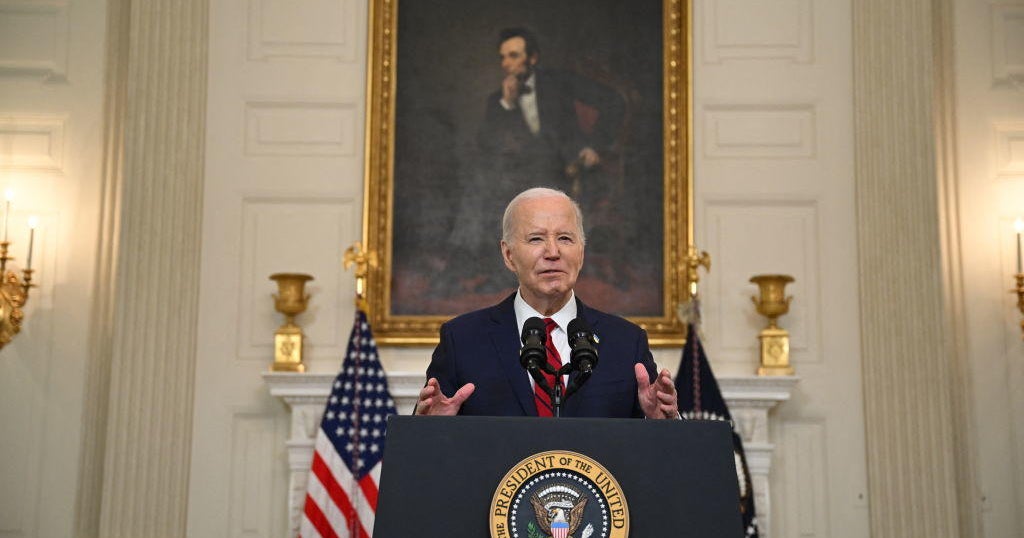France enshrines women's constitutional right to an abortion in a global first
Paris — France became the first country to enshrine a woman's right to an abortion in its constitution. Lawmakers from France's upper and lower houses of parliament met Monday and easily passed the historic amendment.
The bill was approved in an overwhelming 780-72 vote, and nearly the entire joint session stood in a long standing ovation.
The move was driven by concern that snowballed in France as the U.S. started rolling back abortion rights two years ago, when Roe v. Wade was overturned. French President Emmanuel Macron promised that France would ensure women's right to abortion was protected in the event of any similar moves to restrict access at any time in the future.
The amendment to Article 34 of the constitution would explicitly enshrine "a woman's guaranteed freedom to have recourse to an abortion."
Macron announced after the vote that the amendment would be inscribed in the constitution on Friday, March 8 — International Women's Day — during a ceremony in central Paris that will be open to the public. Writing on social media, he said the vote was a matter of "French pride" and a "universal message."
The move has overwhelming support in the country. Several opinion polls have found that more than 80% of the French population approves of amending the constitution to enshrine that right.
There has been cross-party support for the change. Even far-right parliamentarians, from parties that have historically opposed expanding abortion rights, voted in favor of the reform.
Abortion was legalized in France in 1975. The legal limit for abortions was extended from 12 to 14 weeks of pregnancy in 2022, amid anger that French women were often forced to travel abroad for the procedure.
Just days ahead of International Women's Day on March 8, there was another historic moment Monday when the Congress was opened by a woman for the first time.
The president of the National Assembly, Yaël Braun-Pivet, launched the proceedings, saying: "I am proud to pay tribute to all the women who have written, have acted, have fought daily so that we can climb the steep slope leading to equality between men and women."
Prime Minister Gabriel Attal told the session in Versailles: "We owe a moral debt to women," and said that passing the amendment would be "a victory for women's rights."
"When women's rights are attacked in the world, France rises and places itself at the forefront of progress," Attal said in a social media post after last week's Senate vote in favor of the amendment.
Justice minister Eric Dupond-Moretti called it "an historic vote," adding: "It reminds all those who didn't yet know it that the women in our country are free, and to what point we are all attached to that freedom."
France is a proudly secular country, though there is a strong Catholic tradition embedded in the culture. The country's Conference of Bishops relayed a call Monday for a day of "fasting and prayer," called for by several Catholic associations, over the pending legislation.
The Vatican also noted its opposition last month, and on Monday its Pontifical Academy for Life released a statement saying that, "in the era of universal human rights, there can be no 'right' to take a human life."





